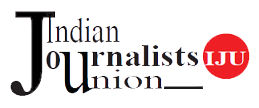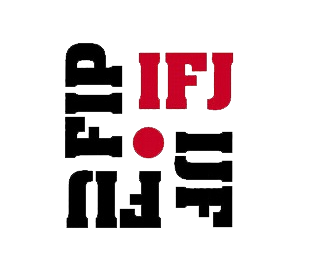- Sabina Inderjit
Three cheers to courage and solidarity! In the moment of India's #MeToo, the women journalists who have come out and spoken of their harrowing experience at the hands of their former editors or senior colleagues deserve kudos. Equally important is the fact that the media fraternity lent unflinching support and has given the much-needed impetus to the fight against sexual harassment at the work place. However, a nagging question appears to pop up in many a conversation over this revolution: why now after many long years?
My answer to this is rather simple. It's sheer timing. There is no doubt that times have changed. We are a society, which is far more open today because of western influence, globalisation, social media providing a platform for sharing and learning and we definitely are part and parcel of the global movement for women empowerment. Plus, the connotation of being sexually harassed is no longer fuzzy as it was in the late 80s or early 90s when many would see it as harassment by way of physical abuse, molestation or rape, but, today it encompasses a far larger dimension.
Remember, way back in 1997, the Supreme Court of India acknowledged in its Vishakha case judgement that workplace sexual harassment is a form of gender discrimination and is a human rights violation. However, it took the government over a decade to enact a law specifically addressing the issue i.e. in 2013 the Sexual Harassment of women at workplace (Prevention, Prohibition and Redressal) Act came into place. And we all must make a particular note that: 'Sexual Harassment' includes such unwelcome sexually determined behaviour (whether directly or by implication) as: Physical contact and advances; a demand or request for sexual favours; sexually coloured remarks; showing pornography; any other unwelcome physical, verbal or nonverbal conduct of sexual nature.
And if I look back at my days in the Times of India in the mid-80s to the late 90s, I would now unhesitatingly say how naive I was then. But those were different times. I recall the editorial department in Delhi had only a handful of women and when a number of us young trainees, joined, we seem to have given a cultural shock--our jeans or skirts would make heads turn and there were disapproving looks. Today, it is a standard dress code.
Then there were occasions such as the department head would call me to his room, put his arm around and say 'well done' after I had gotten a front page scoop. Was it just his way of expressing appreciation affectionately as he was aged and knew I was the daughter of a journalist, I would wonder. But then one time when he kissed me on my cheek with that 'well done' I felt uneasy. I mentioned it to a colleague but she said he was old and harmless. But then would he have expressed appreciation in the same form with male colleagues, who too had done well? Another time, a department head tried to get over friendly by calling me up after work and would ramble about how good a person I was. I started avoiding his calls, at some point told him to back off, but at no time did it strike me then to report the matter to his superior.
And then there was another incident, which made me reach out to a male colleague to accompany me the next time I went to an MP's house in search of a scoop. On my first visit, the MP sat in his bedroom in his banian and lungi (vest and wrap around) and while sharing details of the JPC sittings on Harshad Mehta scam started jerking himself. I was terribly uncomfortable, cut short my questions and scrambled out. My colleague, who went with me on my second visit on my request, advised me I look for another source.
That incident disturbs me these days. Why wasn't I bold enough to confront the MP and ask him what was he doing? Why didn't I report the matter to his colleagues or party head? Simply because at that time though I found his action disgusting, he didn't thrust himself on me and so I felt it was not a case to be reported. Now I realise how wrong I was. Wasn't this an 'unwelcome sexually determined behaviour (whether directly or by implication)? And even though it was not at the work place it certainly was work related.
In retrospect I made a mistake, like many others, who may have too by not comprehending such kind of gender discrimination. I must add that it so emerges that the MP had quite a reputation as when I recently recalled this incident to a Bengal cadre officer on the ongoing MeToo wave he named the MP promptly and asked was it he. On the dot! This makes me further angry at myself, for had I done something about it then, perhaps he would have corrected himself and many other women might have been spared the humiliation.
I must also share that at a recent workshop with women journalists from across Asia (many of whom were much younger), I realised that the criterion of sexual harassment hasn't really sunk in. Initially, when the question was asked whether anyone had encountered sexual harassment at the work place, no hands went up, but when I raised mine and shared the incidents mentioned above, more hands were raised. Leading me to realise that while we speak of 'Zero tolerance against sexual harassment,' there is precious little that has been done so far.
Undeniably, it is this MeToo# revolution which has helped raise awareness and put sharp focus on sexual harassment, more than any other law has been able to achieve so far. And, the Indian media instead of reporting the movement started by Tarana Burke, following the sexual abuse scandal of Harvey Weinstein, and the recent scandals in Bollywood, is now part of the action. Women journalists have come forward with their stories of harassment and abuse, taking on the big and the mighty.
The movement has not only nudged them to speak out but given them the confidence of being heard without fear of anyone passing judgement. They not necessarily seek justice but importantly become messengers of change. The change in news rooms, where men are forced to become conscious that they must be correct in their conduct these times onward. And, the change where no longer would the mandatory Internal Complaints Committees remain just a facade!
Albeit, the furore so far has been triggered in what many would say the elite English media and cosmopolitan India. The movement must move forward to the regional media, where one fears there would be worse horror stories. "No, means No" (a powerful dialogue in the movie Pink) must be understood by our male colleagues. For it's no longer a man's world. The women have broken the glass ceiling long ago and there must be respect for gender equality and a big no to gender discrimination. A beginning has been made. It is time to hope as Oprah Winfrey recently said "we are heading an era where no one would have to say ever again MeToo."




